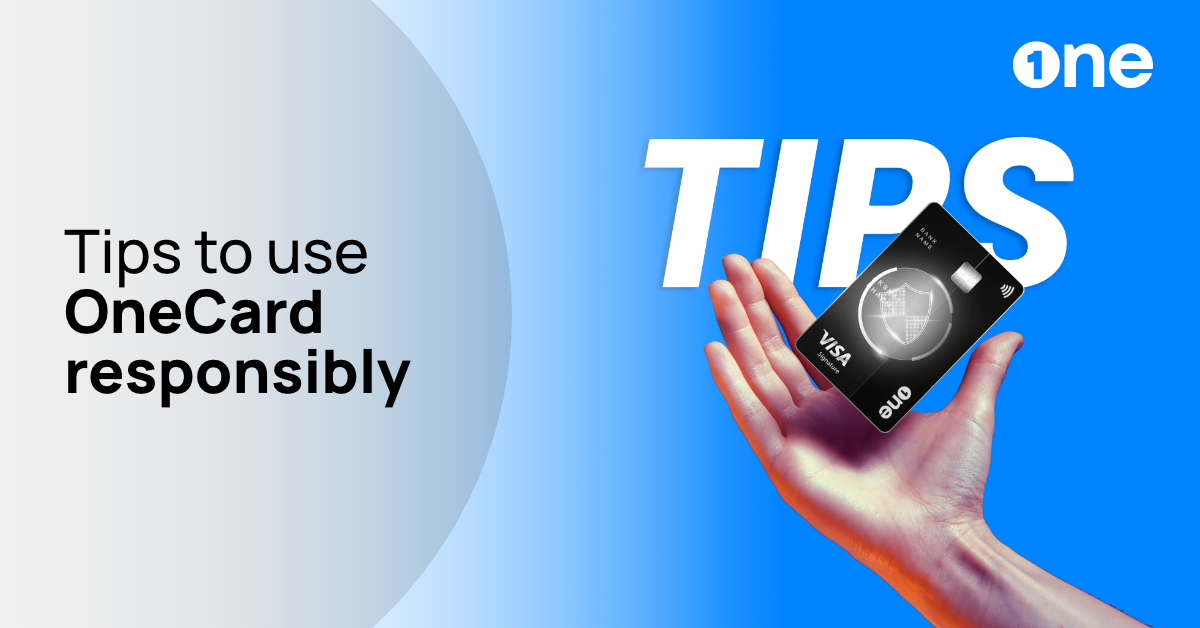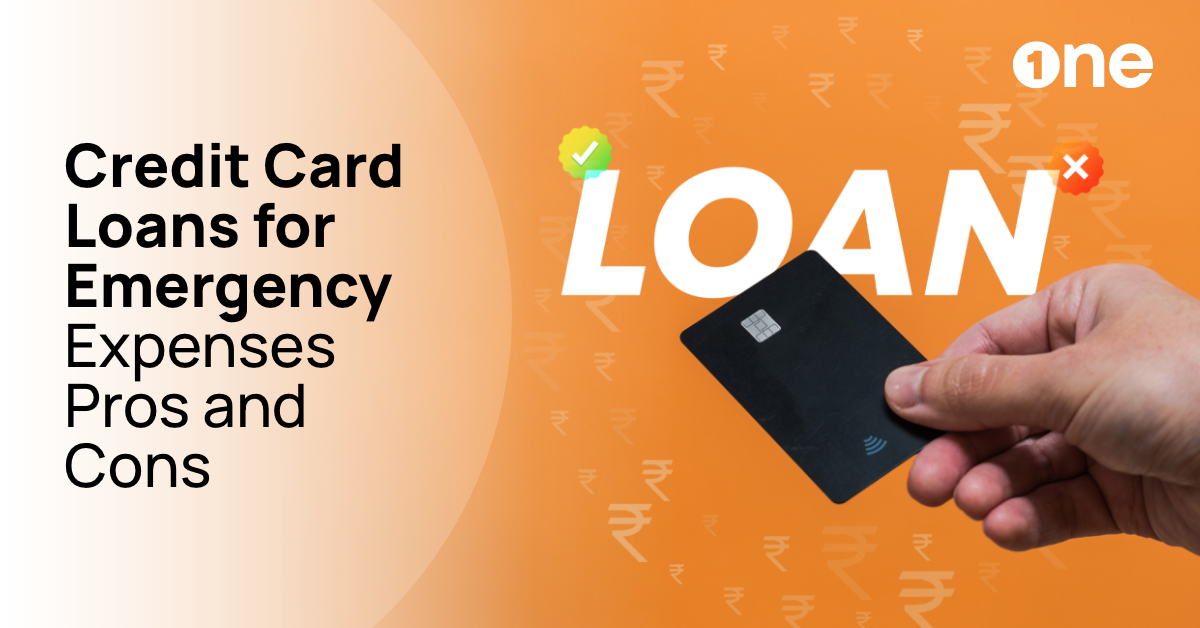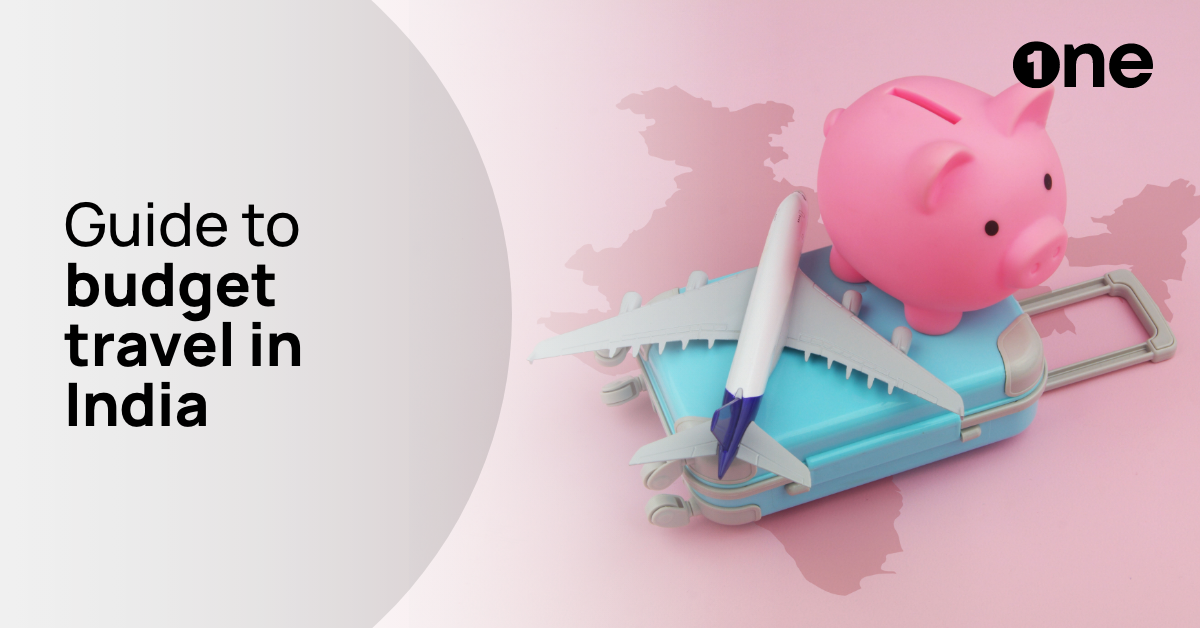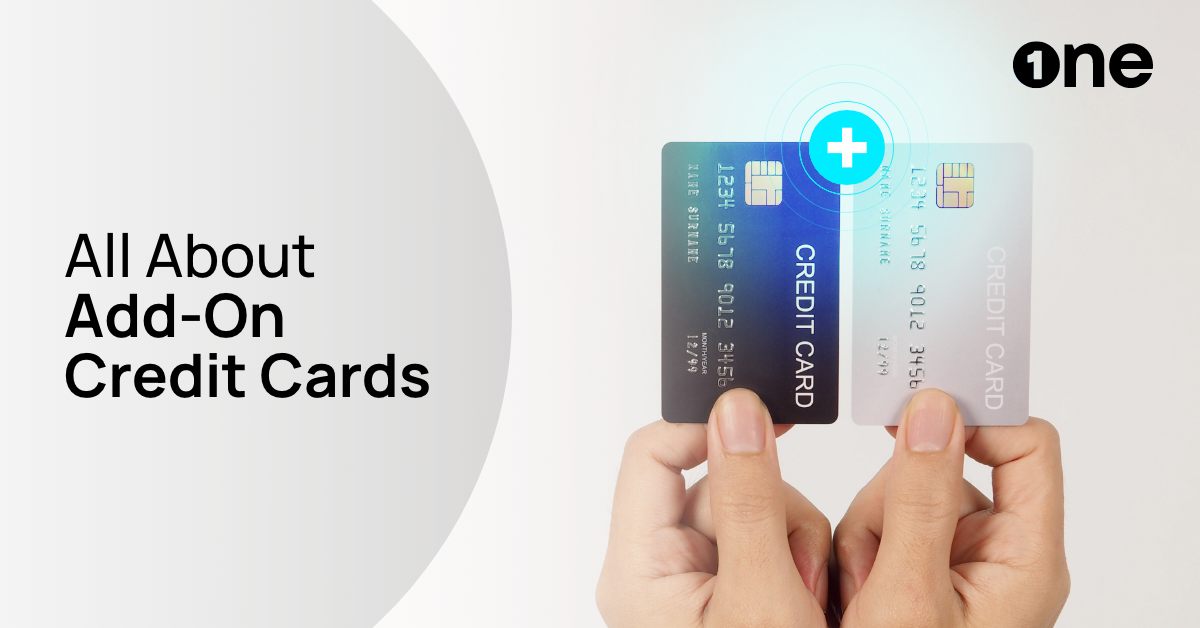Avoid Common Credit Card Mistakes While Using One Credit Card?
By OneCard | October 17, 2024

Credit cards are a great way to build credit worth, follow a budget, and save a few bucks with cashbacks and rewards. However, if you do not manage your credit card usage well, it can have negative implications on your finances, such as getting stuck in a debt cycle and reducing your credit score.
Here are a few common credit card mistakes you might be making and how to avoid them:
Table of contents:
1. Failing to Pay Credit Card Bills
One of the most serious mistakes is not paying your credit card bills on time. Whenever you miss a payment deadline, interest is charged on unpaid balances. Make it a priority to pay your dues on time to not let your credit score suffer. For smart OneCard app usage, you can use the Insights feature to track all your expenses and due dates so you never miss one again.
2. Cash Advances
This might seem like a convenient credit card feature of a credit card, but it can get really expensive if used too frequently. Withdrawing cash using a credit card will start accruing interest immediately, without any grace period, unlike regular purchases. You will also be liable for a cash advance fee and a one-time fee on the amount withdrawn, adding significant debt to your billing cycle. This is why it is recommended to use this feature only in unavoidable scenarios and emergencies rather than using it frequently.
3. Only Paying the Minimum Amount
While you should pay at least the bank’s minimum amount, clearing the total outstanding debt is always the better idea. Paying the minimum amount can lead to accumulated debt, which can start a debt cycle that can take months or years to clear. Plan your expenses better and stick to consistent payment timelines.
4. Only Paying the Minimum Amount
When you apply for a credit card, it is important to read the terms and conditions. This helps you understand all the charges and fees associated with your credit card. A few important charges to look out for are annual charges, late payment fees, balance transfer fees, and foreign transaction fees. Knowing the terms of your credit card is essential to steer clear of unforeseen charges.
5. Maintain a Credit Utilisation Ratio
Reaching for your credit card for nearly all of your purchases may not be a sound approach. Doing this will raise your credit utilisation ratio – your monthly credit card spending divided by the total credit limit – lowering your credit score. Generally, it is recommended to keep your credit utilisation ratio low to maintain a good credit score.
6. Overspending for Rewards
The psychological attraction of rewards can entice you into overspending – just so you can get those rewards. But in the long run, this may turn out to be a financially irresponsible idea. Make sure you use these rewards to your advantage, such as for an upcoming travel plan.
7. Cancelling Your Credit Card
When you accumulate too much debt due to overspending, you might think that paying off the existing debt and closing those credit cards is the right approach. However, doing this may increase your overall credit utilisation ratio and also lower your credit score. It makes more sense to keep your credit card active and use your credit limit responsibly for a few months after a month of heavy debt.
8. Choosing a Credit Card Not Suitable for Your Lifestyle
All credit cards cater to different financial goals and needs. So get a credit card tailored to your lifestyle, needs and usage. For instance, frequent travellers should look out for credit cards like OneCard that offer exciting travel offers and needs.
ALSO READ: How to Start Using Your One Credit Card
Credit cards complement your overall financial synergy, enabling you to earn rewards and perks and manage your spending. Avoiding these common credit card mistakes will help you make the most of your credit card and reduce the risk of hurting your credit history. Follow these One Credit Card usage tips mentioned above to ensure you use your credit card wisely.
**Disclaimer: The information provided in this webpage does not, and is not intended to, constitute any kind of advice; instead, all the information available here is for general informational purposes only. FPL Technologies Private Limited and the author shall not be responsible for any direct/indirect/damages/loss incurred by the reader for making any decision based on the contents and information. Please consult your advisor before making any decision.



Sharing is caring 😉